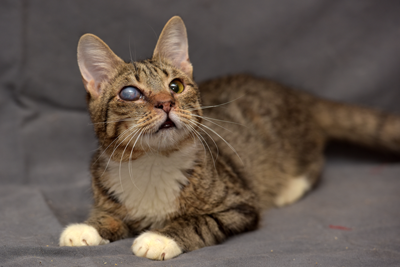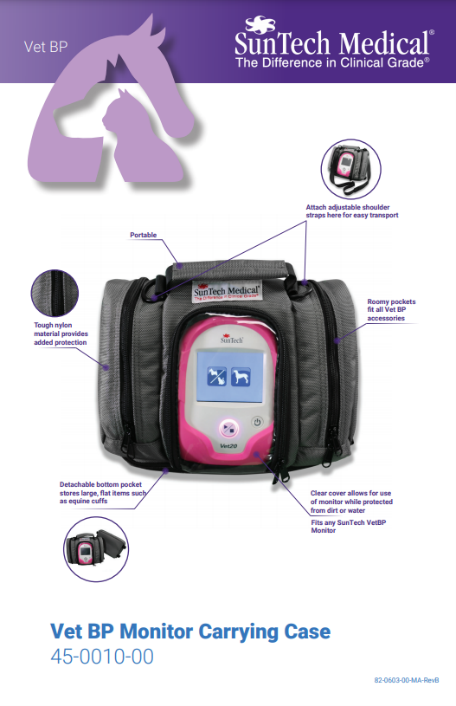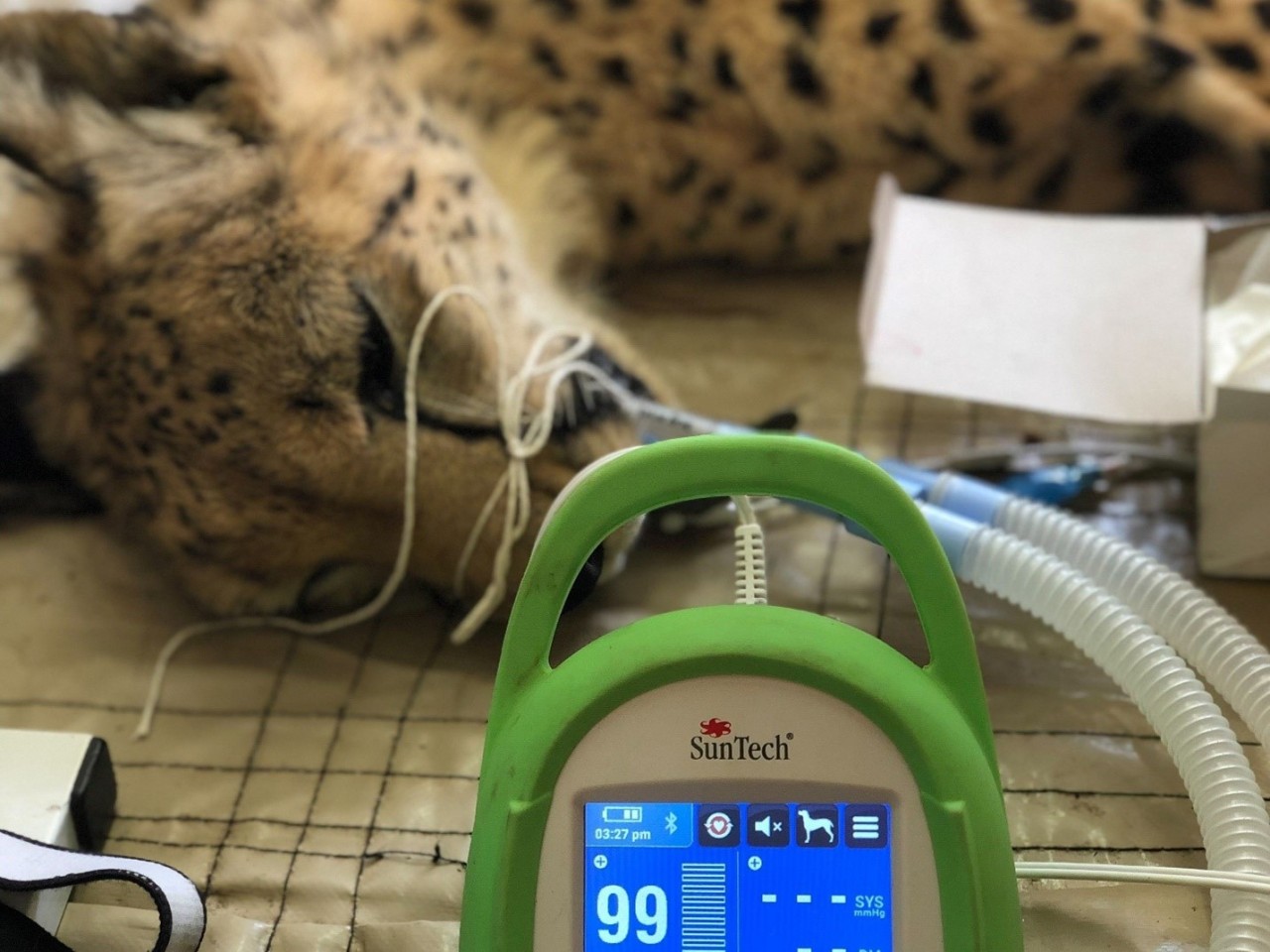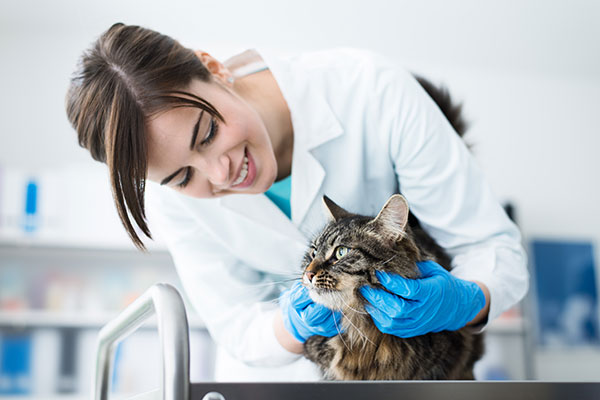![]()
Blog @ SunTech
Advice from the BP Measurement Experts
Why Does Your Cat Have High Blood Pressure?

Here are The 3 Diseases that Cause High Blood Pressure in Cats:
Chronic Kidney Disease
Chronic renal disease, or chronic kidney disease, is a fairly common disease among older cats. Your veterinarian should be screening for this disease at every annual or twice-annual check up once your cat reaches 7 years old. The most frequent signs of this disease are weight loss, lethargy, increased urination, and high blood presure1. Often, cats with early kidney disease will drink more water and eat less food than they did previously. Some of these signs can look like normal aging so be sure to bring your cat to the vet at least once a year even if you don’t think anything is wrong.
Chronic kidney disease can cause hypertension, which may need to be managed by medication. Your vet may even recommend regular blood pressure checks to make sure that the hypertension is being managed. Blood pressure that is too high for a sustained time can lead to further kidney damage.2 Other ways to manage chronic kidney disease include increasing the amount of water consumed by your cat and controlling his or her diet.
Hyperthyroidism
Hyperthyroidism is a common condition in cats, especially cats older than 10 years. This disorder of the thyroid causes increases in production of hormones from the thyroid glands. These hormones normally regulate many body processes and increases or decreases in those hormones can cause serious effects in your cat3. The cause of this disorder is frequently unknown, although it can be caused by a tumor.
The signs of hyperthyroidism can be quite similar to those of chronic kidney disease, including weight loss, increased thirst, and increased urination. If you notice any of these symptoms in your cat, you should schedule an exam with your veterinarian as soon as possible. To diagnose hyperthyroidism, you vet will perform a blood test. Similarly to chronic kidney disease, hyperthyroidism can cause hypertension. If you cat has high blood pressure, his or her blood pressure should be treated and checked on a regular basis to avoid further complications, such as damage to the eyes, kidney, or brain.
This disorder can be treated by medications, surgery, or radioactive iodine therapy4.
Hypertrophic cardiomyopathy
Hypertrophic cardiomyopathy is one of the most common heart diseases seen in feline populations. In this disease, the muscle in the walls of the heart thickens and can make it more difficult for the heart to properly pump blood. When the heart isn’t able to pump blood well, fluid can build up around the lungs, clots can form, and blood pressure will increase. Eventually, this could lead to heart failure or paralysis in the limbs5.
This disease is most commonly found in middle-aged cats and is less frequently found in young cats and kittens. There are certain breeds that are genetically disposed to have a higher risk of hypertrophic cardiomyopathy, including Ragdolls, Maine Coon, and Domestic Short Hair cats. One of the signs of hypertrophic cardiomyopathy that you should watch out for at home is changes in respiration6. If you cat is breathing more rapidly or seems to have to work harder than normal to take breaths, you should visit your vet’s office. Your veterinarian may decide to perform an echocardiogram or electrocardiogram (ECG) or to measure blood pressure to diagnose hypertrophic cardiomyopathy.
If your cat is found to have this disease, he or she may be diagnosed a medication to manage the progression of the disease.
All cat owners should be aware of some of the common signs that indicate a possible illness in their cat. Take notice if you cat eats or drinks more or less than normal or if there are any changes to his or her normal breathing patterns or urination schedule. There are many different diseases associated with high blood pressure, so it is critical to have baseline blood pressure measurements taken at the vet’s office when your cat is young and healthy. These readings early in life will help a vet diagnose a disease later in life by demonstrating an increase in blood pressure.
- “International Cat Care.” Chronic Kidney Disease in Cats – Management | International Cat Care, icatcare.org/advice/cat-health/chronic-kidney-disease-cats-–-management.
- “Chronic Kidney Disease in Cats.” vca_corporate, vcahospitals.com/know-your-pet/kidney-failure-chronic-in-cats.
- “International Cat Care.” Hyperthyroidism | International Cat Care, icatcare.org/advice/cat-health/hyperthyroidism-overactive-thyroid-gland.
- “Cat Hyperthyroidism (Overactive Thyroid) Symptoms and Treatments.” WebMD, WebMD, pets.webmd.com/cats/guide/cat-hyperthyroidism.
- “Hypertrophic Cardiomyopathy in Cats.” American College of Veterinary Internal Medicine, www.acvim.org/Animal-Owners/Animal-Education/Health-Fact-Sheets/Cardiology/Hypertrophic-Cardiomyopathy-in-Cats.
- Feline Cardiomyopathy. Ryan Hospital, 2013, Feline Cardiomyopathy.
Interested in getting more SunTech news, product info, as well as
tips, tricks, and insights from BP experts?
Sign up to get fresh content delivered direct to your inbox.



